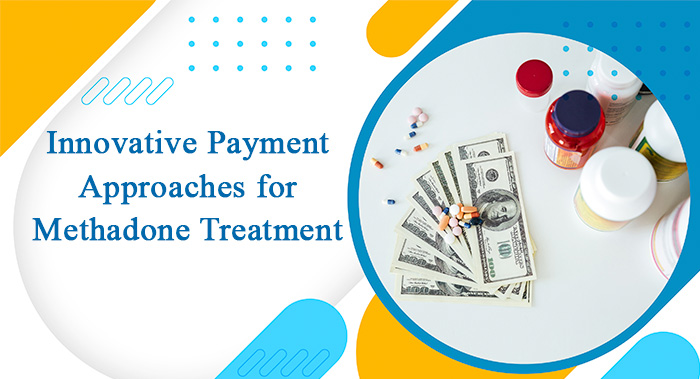
Innovative Payment Approaches for Methadone Treatment
Behavioral health services covered by Medicare, which are services related to mental health and substance use, can significantly impact a person's overall well-being. It's important to know what CMS Physician Proposed Rule 2024 is.
Methadone is an FDA-approved medication for treating Opioid Use Disorder (OUD) and managing pain. It should be used under strict doctor's instructions to ensure that methadone is a safe and helpful option. It assists people in overcoming addiction and getting back to living fulfilling lives.
Methadone is a safe and effective medication when used correctly. It's customized for each person, and the dose may be adjusted over time. It's crucial never to share your methadone with anyone else, especially if you take it at home without direct supervision.
Methadone isn't a standalone solution; it's part of a more extensive treatment plan. This plan involves counseling and various therapies that focus on your overall well-being, addressing your health's physical, emotional, and psychological aspects. It's an approach that looks at the whole person and aims to help them recover and thrive. It's essential to tell your healthcare provider about your complete health history to make sure methadone is safe for you.
Methadone can interact with other medications and potentially harm your heart. Even when you no longer feel its effects, methadone stays in your body long. You could accidentally overdose if you don't take it as your doctor advises. So, always follow your doctor's instructions carefully.
When doctors choose pain-relieving medications for elderly patients, they consider a few things. They look at how well the medicine works, its side effects, how quickly it starts working if it interacts with other drugs, and if it could be misused. They also consider practical stuff like how much it costs and if it's easy to get.
The type of pain and how bad it is also matters. Some medicines are better for certain types of pain. These decisions change over time. So, doctors must carefully consider the patient's other health problems, like cancer, arthritis, or nerve pain, and how well they can move and do things. For cancer pain, potent opioids like morphine are usually the go-to choice.
Effects of methadone
Pay close attention to any harmful effects when taking methadone because some could mean you need urgent help. If you experience any of these harmful effects, stop taking methadone and contact a doctor or call emergency services immediately. Methadone can have both standard and severe side effects. Common side effects include restlessness, nausea, slow breathing, itching, sweating, constipation, and sexual issues. On the other hand, serious side effects comprise difficulty breathing, dizziness, rash, swelling of the face or throat, chest pain, rapid heartbeat, and hallucinations or confusion. If you experience severe side effects, seeking immediate medical attention is crucial, as they can be very dangerous.
According to CMS Physician Proposed Rule 2024, the payment and code have been updated
These codes help healthcare providers bill for specific services related to opioid addiction treatment. They cover initial patient assessments, giving patients extra medication to take home, and additional counseling if needed. These codes are regulated to ensure they are only applied when necessary, and they are typically used in combination with other codes that describe the overall treatment plan.
According to CMS physician proposed rule 2024, the code G2067 is a crucial identifier in the healthcare system. It signifies a specific treatment approach called "medication-assisted treatment" (MAT), which is used to aid individuals grappling with opioid addiction. Within MAT, methadone is vital as a medication to manage opioid dependence.
When healthcare providers use the code G2067, they essentially signal that they are implementing a comprehensive treatment plan incorporating methadone to assist individuals facing opioid addiction. This code is essential in tracking and billing these vital healthcare services, ensuring patients receive the care they need to overcome opioid dependency.
Intake Activities (HCPCS code G2076):
- This code is for new patients starting treatment at an Opioid Treatment Program (OTP).
- It covers the initial activities when a new patient begins treatment.
Take-Home Supplies of Methadone (HCPCS code G2078):
- This code is for giving patients up to 7 additional days' worth of methadone medication to take home.
- It can be billed with the weekly bundled payment for up to 3 units (equal to a one-month supply).
- It's only used with the methadone weekly episode of care code (HCPCS code G2067).
Take-Home Supplies of Oral Buprenorphine (HCPCS code G2079):
- Like the methadone code, this one provides up to 7 extra days' worth of oral buprenorphine medication for patients to take home.
- It can be billed with the base bundle for up to 3 units (equivalent to a one-month supply).
- This code is used alongside the oral buprenorphine weekly episode of care code (HCPCS code G2068).
Additional Counseling or Therapy Services (HCPCS code G2080):
- This code is used when counseling or therapy services go beyond what's initially planned for a patient.
- Opioid Treatment Programs (OTPs) must document the medical necessity for these extra services in the patient's medical record.
CMS now pays certified Opioid Treatment Programs (OTPs) and methadone payments through bundled OUD Medicare—part B treatment services payments. Covered services include FDA-approved opioid agonist and antagonist medication (including methadone, buprenorphine, and naltrexone) and their administration (if applicable), substance use counseling, individual and group therapy, toxicology testing, intake activities, periodic assessments, and take-home supplies of naloxone.




